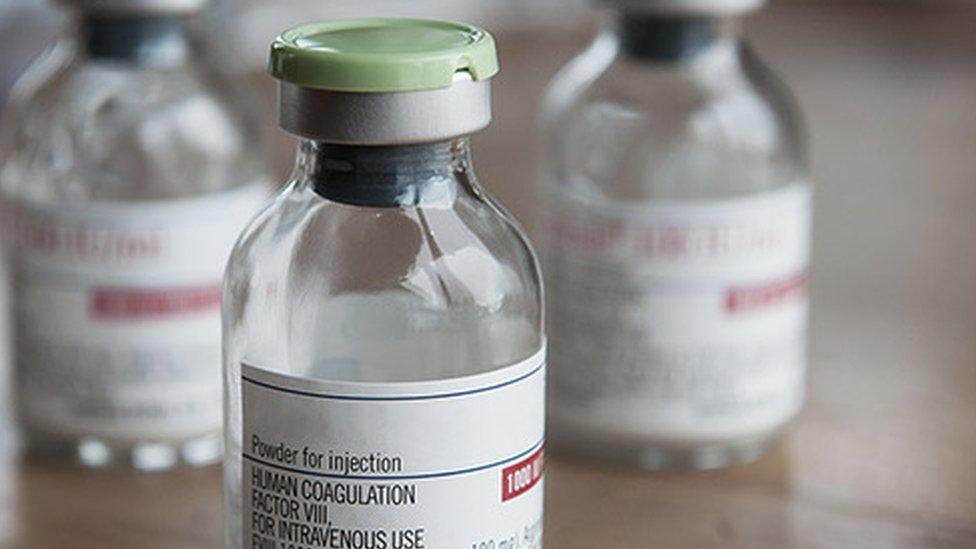Infected blood scandal: £100k first payments to be made this week
- Published
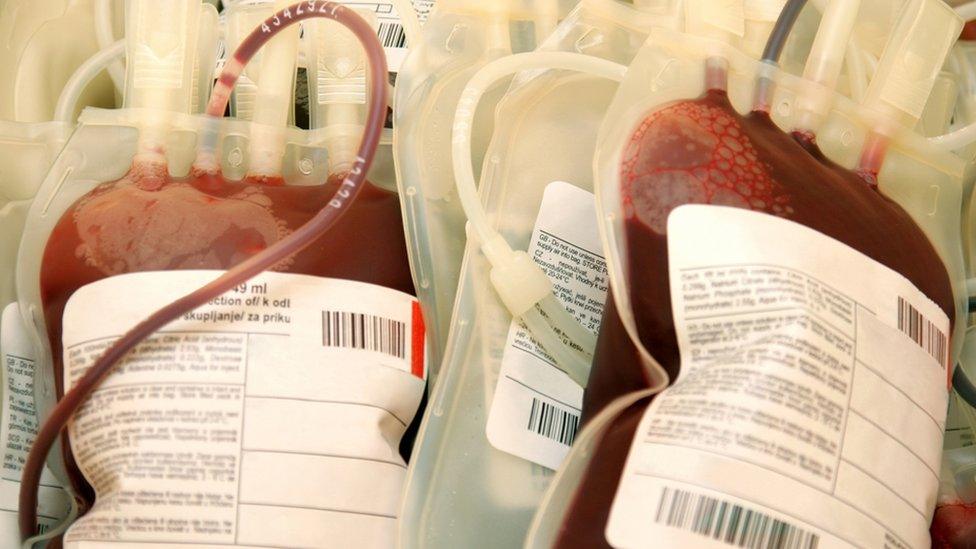
Infected and unscreened blood donations in the 1970s were pooled and used in blood products, infecting thousands of patients in the UK
Contaminated blood victims have welcomed initial £100,000 compensation payments to be made this week but said the campaign for justice goes on.
Thousands of people are expected to receive their money by the end of October.
But only those directly infected or their partners are eligible.
Thousands whose children or parents had transfusions infected with hepatitis C or HIV are still demanding justice.
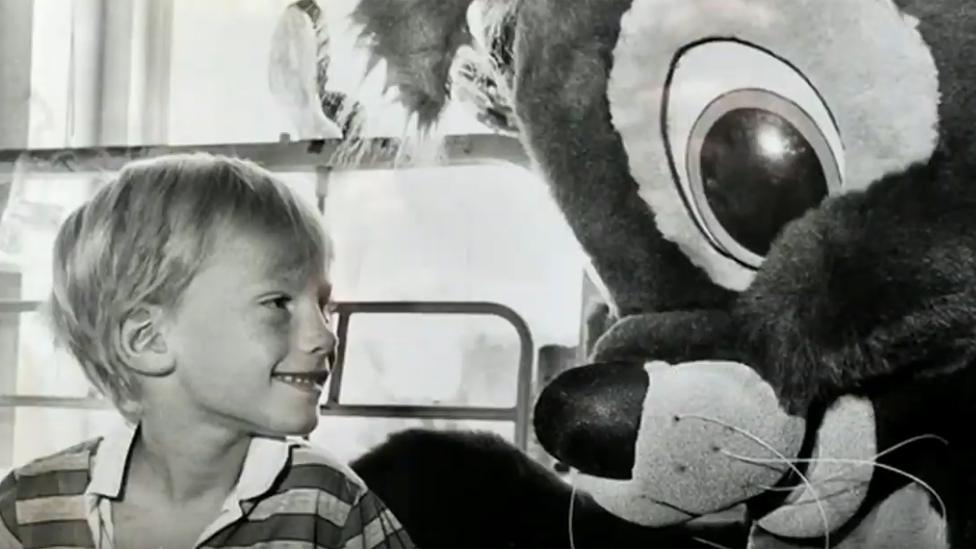
Colin Smith died at the age of seven after being infected with HIV/Aids
A public inquiry is underway into the scandal which meant patients were infected in the 1970s and 1980s. It's due to end next year.
'We were known locally as the Aids family'
Janet and Colin Smith's youngest son was infected after an adenoid operation.
Colin, a haemophiliac from Newport died aged seven, after being infected with hepatitis C and HIV.
The Smiths told the inquiry they suffered abuse - including having crosses scratched on their door, abusive calls and graffiti on their house.
"We were known locally as the Aids family and were forced into isolation," Mrs Smith said.
"Our other boys were bullied at school. Colin's father lost his job. He was told he was unemployable.
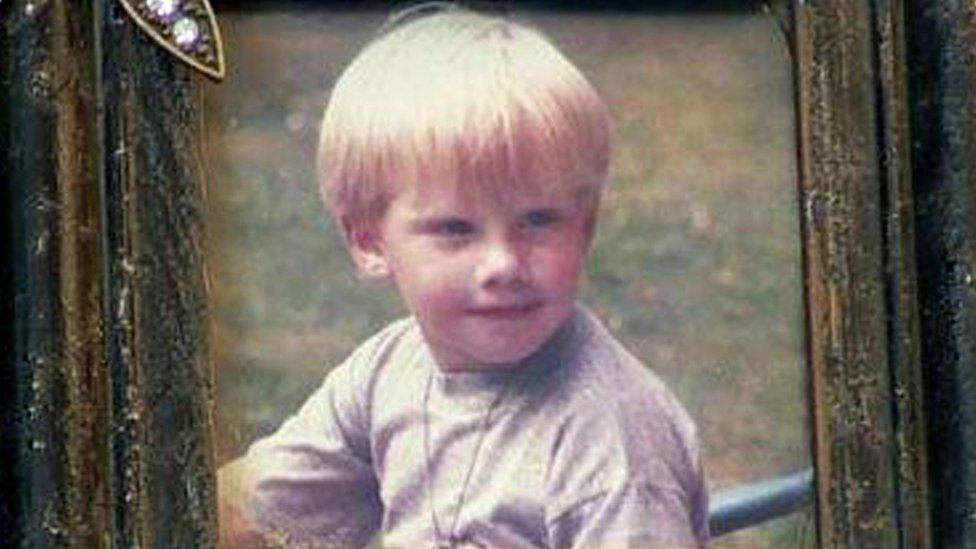
His family became known locally as the Aids family
"Colin should never have died. He had haemophilia, it should have been controlled, his treatment killed him, it should never have happened.
"That sort of anguish should be recognised by the government.
"Colin is still a big part of our life and we all want him recognised, not dying for no reason."
She said while they were happy about the payments to some but they were also a "little bit down", as they are unlikely to receive payments.
"We feel devastated to tell the truth," Mrs Smith said.
They said it's not the money, "it's the recognition that children have died of the same thing".
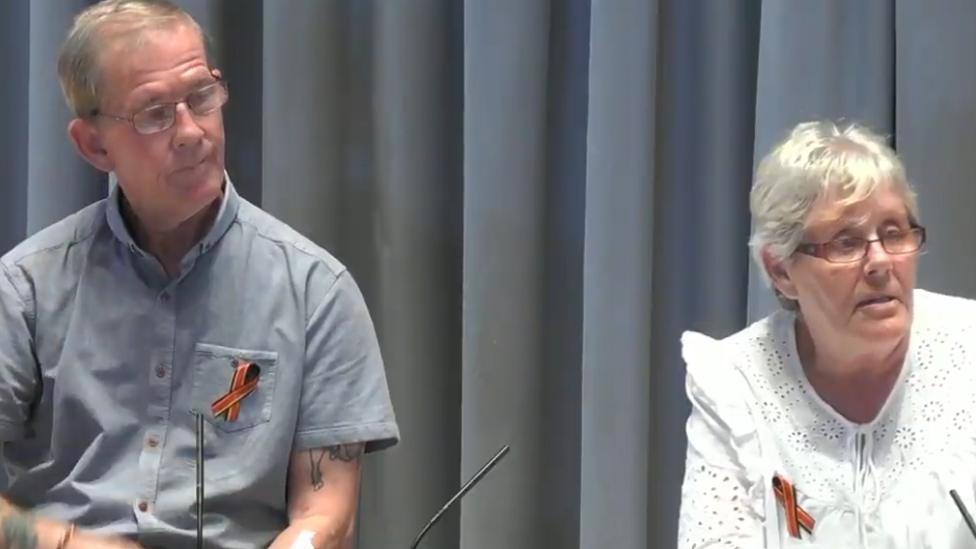
Colin Smith's parents said their home was targeted after TV ads about Aids awareness
Bev Tumelty's two brothers Haydn and Gareth both died in 2010 after being infected in the 1980s.
"It's a big day for the campaign and brilliant for people who will get a payout," she said.
"My sister-in-law is receiving one and the financial hardship she has endured is immense."
Ms Tumelty said both her brothers had to give up work early after being infected because of treatment they received.
She said: "They were unable to work, couldn't get life insurance, or a mortgage. It has massively impacted them as a family.
"It sounds like a massive sum and it will ease the burden of them constantly having to worry about things. But when you consider we've campaigned for 30 to 40 years it's not huge."
Both Bev's brothers campaigned for justice for victims of contaminated blood.
"This is a welcome step, nothing will ever bring my brothers back, it should not have happened," she said.
Haemophilia Wales chairwoman Lynne Kelly said interim payments comfort a lot of people who may not live to see the public inquiry's results.
"A lot of people in our group won't see end of the inquiry, they're on palliative care and we want them to have some recognition," Ms Kelly said.
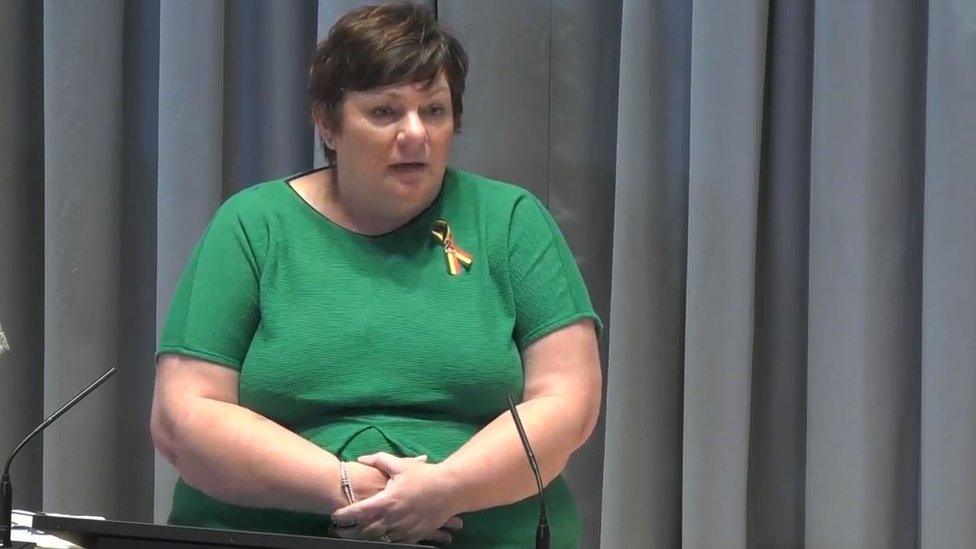
Bev Tumelty lost both her brothers in the space of seven months
"It's important for those people.
"This is a step in the right direction. It's the first time the government has used the word compensation. Facts have been covered up and the truth never laid out before the public.
"The victims have always known the truth, the truth is so important to everyone."
She said the money and the recognition were important.
"The campaigners have proved to be right, being believed and getting to the truth," Ms Kelly said.
"I hope one of the recommendations of the inquiry will be compensation for all the people affected."
Related topics
- Published17 September 2022
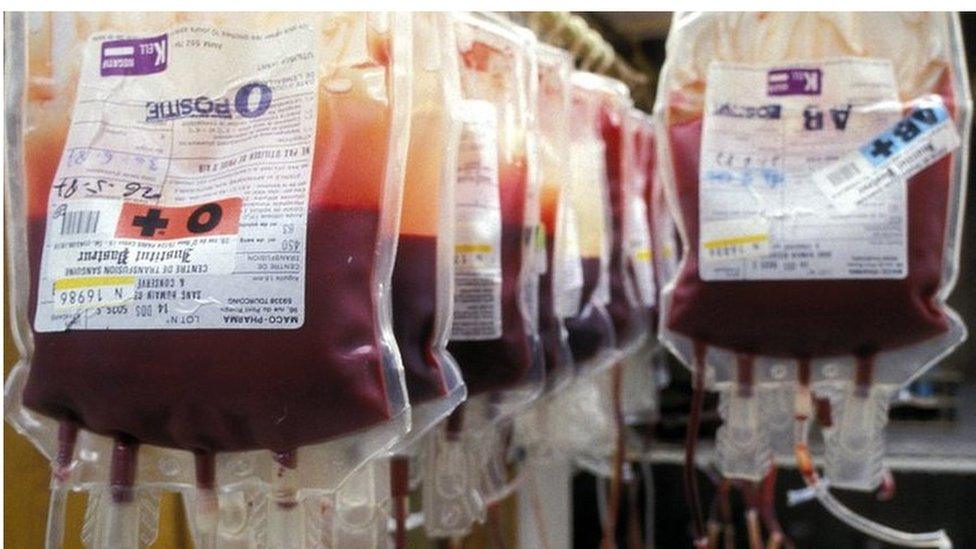
- Published30 September 2022
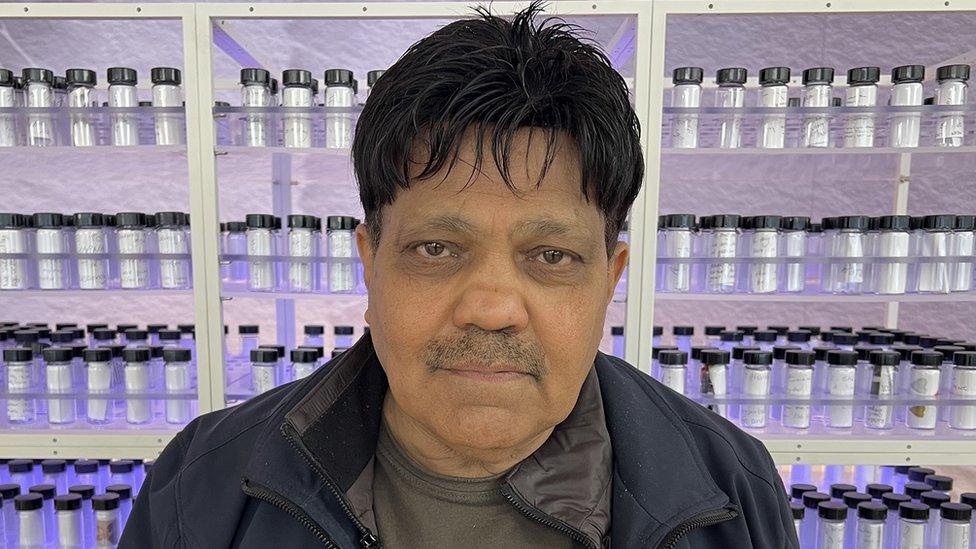
- Published30 July 2022
